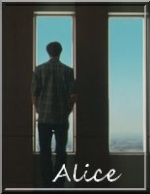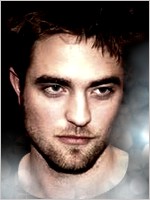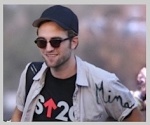
The RPattz Club, Forum du site Therpattzrobertpattinson.blogspot.fr
|
| | | [Presse] Sight and Sounds - Juillet 2012 |  |
|
+4lilipucia sabrinalor Alice ptiteaurel 8 participants | | Auteur | Message |
|---|
ptiteaurel
Administratrice


Nombre de messages : 38566
Date d'inscription : 13/03/2009
Age : 44
Localisation : Arras
![[Presse] Sight and Sounds - Juillet 2012 Empty](https://2img.net/i/empty.gif) | |   | | Alice
Rob'sédé


Nombre de messages : 12206
Date d'inscription : 30/03/2010
Age : 76
Localisation : Un petit coin au soleil
![[Presse] Sight and Sounds - Juillet 2012 Empty](https://2img.net/i/empty.gif) |  Sujet: Re: [Presse] Sight and Sounds - Juillet 2012 Sujet: Re: [Presse] Sight and Sounds - Juillet 2012 ![[Presse] Sight and Sounds - Juillet 2012 Icon_minitime1](https://2img.net/i/fa/m/icon_minitime1.gif) Mer 13 Juin - 18:34 Mer 13 Juin - 18:34 | |
| | |
|   | | sabrinalor
Rob'sédé


Nombre de messages : 6015
Date d'inscription : 17/11/2011
Age : 55
Localisation : lorraine
![[Presse] Sight and Sounds - Juillet 2012 Empty](https://2img.net/i/empty.gif) |  Sujet: Re: [Presse] Sight and Sounds - Juillet 2012 Sujet: Re: [Presse] Sight and Sounds - Juillet 2012 ![[Presse] Sight and Sounds - Juillet 2012 Icon_minitime1](https://2img.net/i/fa/m/icon_minitime1.gif) Mer 13 Juin - 21:30 Mer 13 Juin - 21:30 | |
| | |
|   | | lilipucia
Co-Webmastrice/Modote


Nombre de messages : 14223
Date d'inscription : 17/11/2009
Age : 51
Localisation : suisse
![[Presse] Sight and Sounds - Juillet 2012 Empty](https://2img.net/i/empty.gif) |  Sujet: Re: [Presse] Sight and Sounds - Juillet 2012 Sujet: Re: [Presse] Sight and Sounds - Juillet 2012 ![[Presse] Sight and Sounds - Juillet 2012 Icon_minitime1](https://2img.net/i/fa/m/icon_minitime1.gif) Mer 13 Juin - 21:42 Mer 13 Juin - 21:42 | |
| | |
|   | | Jel
Rob'sédé


Nombre de messages : 6638
Date d'inscription : 11/02/2011
Age : 35
![[Presse] Sight and Sounds - Juillet 2012 Empty](https://2img.net/i/empty.gif) |  Sujet: Re: [Presse] Sight and Sounds - Juillet 2012 Sujet: Re: [Presse] Sight and Sounds - Juillet 2012 ![[Presse] Sight and Sounds - Juillet 2012 Icon_minitime1](https://2img.net/i/fa/m/icon_minitime1.gif) Jeu 14 Juin - 23:53 Jeu 14 Juin - 23:53 | |
| | |
|   | | Sabine
Co-Webmastrice/Modote


Nombre de messages : 11161
Date d'inscription : 25/05/2009
Age : 37
![[Presse] Sight and Sounds - Juillet 2012 Empty](https://2img.net/i/empty.gif) |  Sujet: Re: [Presse] Sight and Sounds - Juillet 2012 Sujet: Re: [Presse] Sight and Sounds - Juillet 2012 ![[Presse] Sight and Sounds - Juillet 2012 Icon_minitime1](https://2img.net/i/fa/m/icon_minitime1.gif) Dim 17 Juin - 2:05 Dim 17 Juin - 2:05 | |
| | |
|   | | ptiteaurel
Administratrice


Nombre de messages : 38566
Date d'inscription : 13/03/2009
Age : 44
Localisation : Arras
![[Presse] Sight and Sounds - Juillet 2012 Empty](https://2img.net/i/empty.gif) |  Sujet: Re: [Presse] Sight and Sounds - Juillet 2012 Sujet: Re: [Presse] Sight and Sounds - Juillet 2012 ![[Presse] Sight and Sounds - Juillet 2012 Icon_minitime1](https://2img.net/i/fa/m/icon_minitime1.gif) Dim 17 Juin - 10:04 Dim 17 Juin - 10:04 | |
| Received wisdom has it that only bad novels, or at least disposable ones, stand a chance of becoming good films. Supposedly, any attempt to film a good novel is doomed to failure - or at best to result in quixotic half-measures. But that a prestigious book by a major writer should actually improve in translation to the screen is, according to this unspoken law, unheard of. Yet this is the case with David Cronenberg's Cosmopolis, based on the 2003 novel by Don DeLillo, in which a young billionaire financier, Eric Packer, crosses Manhattan in a stretch limo and contemplates the downfall of Western capitalism, while cruising in search of a haircut and his own ultimate perdition. It's like the Forbes 100's Journey to the End of the Night.
In Cronenberg's sleek, eerily numbed reimaging of the book, Packer is played by erstwhile Twilight heartthrob, Robert Pattinson, clearly no stranger to limo living. By bizarre coincidence, Cosmopolis was one of two white-limo fantasias in the Cannes competition, the other being Leos Carax's Holy Motors, in which the car is occupied by a protean existential everyman. For my money, Cosmopolis is by far the stranger of the two films, because Carax stakes everything on his film being dreamlike, while Cronenberg, more challengingly, weaves a texture of nightmare out of material that, ostensibly at least, derives from a realist musing on How We Live Today.
Screened near the tail end of the Cannes competition, Cosmopolis was arguably the official selection's hottest ticket. That was partly because of a punchy, tantalising trailer that - one now realises - is audaciously misleading with its quickfire barrage of images of glamour, violence and chaos: men and women aiming guns, a dancefloor frenzy, street riots, and what looked like a dinosaur on Fifth Avenue (it turns out to be a giant papier-maché rat). All these images are indeed seen in the film, but what we get is something richer and stranger than the trailer suggests.
For a start Cosmopolis proves mesmerizingly slow; it moves, like Packer's gridlocked car, at glacier pace. The action takes place largely in the back of the limo, an insulated capsule where Packer sits like a king, his display screens emitting eerie blue light, flickering with (to quote DeLillo) "flowing symbols and apline charts...polychrome numbers pulsing". This data maps the world finance market, on which Eric has over-borrowed insane figures in the Chinese currency the Yuan, bringing about his own ruin and triggering the collapse of the world economy (something less clear than it is in the book, where the comprising currency is the Yen). The car is a space capsule, occupied by a lonely Major Tom of world finance - a plutonaut, if you like.
The car has been "prousted" to Eric's requirements - cork-lined, soundproofed like Proust's study, and it similarly becomes a space for language to flourish. It's a venue for assorted conferences, quasi-therapeutic sessions, sexual encounters. The specialists drop by in succession: among them, Packer's chief of technology Shiner (a nervy Jay Baruchel); art dealer Didi Fancher (Juliette Binoche), with whom Packer has sex before they discuss the viability of his buying the Rothko Chapel; head of theory Vija Kinski (Samantha Morton); and a doctor who gives Eric his daily health check, including a rectal examination, while Eric flirts feverishly with his finance chief Jane Melman (Emily Hampshire). There are other encounters outside the car, including seemingly accidental meetings with Else, the poet wife (Sarah Gadon) who Packer hardly knows; a spat with pie-throwing provocateur André Petrescu (Mathieu Amalric), choreographed along the lines of the maniac skirmishes with Godard's Détective, and ultimately a meeting with the proverbial Disgruntled Former Employee, deranged Unabomber-like Benno Levin (Paul Giamatti), who has sworn to kill Packer.
The film is essentially a series of dialogues staged in a closed space: at once mobile symposium and peripatetic chamber theatre. The superiority of Cronenberg's Cosmopolis over DeLillo's is paradoxical in that the film is an unusually faithful adaptation of the original. After producer Paolo Branco proposed the project to him, Cronenberg wrote the script in a mere six days, and could do so, he says, because DeLillo's dialogue was already so perfect - indeed, the film's dialogue comes across pretty much as transcription of DeLillo's very particular dialogue, which veers between hard-boiled telegraphic and theoretically abstract. (An example at random from the book, Eric to Jane Melan: "My mood shifts and bends. But when I'm alive and heightened, I'm super-acute. Do you know what I see when I look at you? I see a woman who wants to live shamelessly in her body. Tell me this is not the truth.")
In Cannes, Cronenberg tells me of his admiration for DeLillo's language. "To me it's a little like Harold Pinter dialogue. It's based in reality, in observation-in that American people do speak like that, compared with English people or Australians-and yet there is an element of stylisation. I know people who talk like that. It's real but it's also surreal. Any movie you're making, we all know that they're playing a role, they are actors-there's an element of collaboration with your audience in terms of the suspension of disbelief."
Many reviewers, however weren't so enthusiastic about the novel or its linguistic textures. In The New York Times Walter Kirn complained that DeLillo's characters were "barely corporeal cerebral entities" who spoke like "Palm Pilots with lips". For sure, DeLillo's conversations are hard to swallow on the flat page; yet, once the words are put into living people's mouths on screen, something peculiar happens: it becomes Cronenbergian. Formal, stilted and hyper-self-conscious as the exchanges are John Updike, reviewing the book, referred to the dialogue's "terse, deflective, somewhat lobotomised quality"), on screen they acquire a new sharpness and wit. Cronenberg has found comedy in this language that perhaps DeLillo wasn't fully aware of.
Closed world
In strictly narrative terms, Cosmopolis is remarkably undramatic. Things happen, chaos explodes in Eric's orderly "microtimed" existence-yet incident washes off his back. It's as if nothing really happens to him, so insulated is he in his car. In one scene, he goes on talking coolly while the limo is rocking, demonstrators attacking it and graffiting it with spray cans-yet this might as well be taking place in another universe.
The car occasionally opens up to let others in at Eric's behest, but it repels invaders. That's why the film is generally most compelling when confined to its enclosure, that Eric occasionally steps outside rather compromises the unity of place, and it would have been something if the whole film had been pulled off entirely in this ambulant huis clos. Created by production design Arv Grewal, the limo is a dark, opulent womb, with windows that turn opaque black to further exclude the exterior world. Thanks to greenscreen, we are distractedly aware of Manhattan slowly, soundlessly scrolling by outside the windows, as if not actually seen but brought to Eric by live transmission from light years away.
The car is Eric's coffin, Cronenberg says. "He's created this world, but he's also trapped. We looked at Lebanon the movie that takes place entirely inside an Israeli tank, and we looked at Das Boot, which takes place entirely in a submarine. It's protection, like a bomb shelter, but then you're trapped inside. He also talks about elevators a lot, and in the way this is his elevator also."
Add to this limo's strange sonic ambience, excluding all traffic noise, all sense of the city (which intermittently bursts into earshot whenever a door opens and Eric steps outside). All that really exists in this hermetic cell is language-voices isolated in anechoic space. "My sound effects guys were very worried," Cronenberg admits. "Are you sure you don't want the sound of the wheels or the motors or the computers?" I said, 'No, he's trying to keep the sound of the outside world away, and now we're inside his head and there is no sound of the car, of the street. Yes, it will make it sound kind of dreamlike and surreal, but Eric wants that-he's created that.'"
Cronenberg often turns the outside world into a extension of the car's capsule. I wouldn't swear to it on one viewing, but it dawned on me that Cronenberg was avoiding two-shots, in many scenes stressing shot/reverse shot as if Eric and his various interlocutors weren't really occupying the same space. It's only when he wants to stress the claustration that he gives us two-shots that stretch the point: when the manager (Gouchy Boy) of a recently deceased Sufi rapper enters the car, his mountainous body usurps Eric's throne, while Eric huddles in admiration, a courtier before his authoritative bulk.
This spatial cramping is especially acute in the sex scenes, which are comically over-physicalised. When we first see Eric and Didi, she's on his lap, they're humping; once they stop, they stay separate, and shots of Binoche writhing coquettishly around the car, as if in a post-coital fashion shoot, isolate her within its black leather interiors. It's as if she's in a cage, a trapped luxury acquisition. Later, Cronenberg uses claustrophobia and body language to brilliantly bizarre effect in the scene where Eric and Jane talk sex, but only mime it: she's sweaty in jogging gear, crushing a water bottle between her thighs, while a naked Eric leans towards her, talking as he undergoes his rectal examination. In one shot, his arm and torso arch over Jane like a wing, or a limb in a Francis Baon painting. "How come we've never spent this kind of time together?" she asks, bringing home the absurdity of this parody of glamour sex.
Elsewhere a series of environments echo the car's isolation and enclosure. There's a nightclub scene in which Eric and a bodyguard watch a heaving crowd from a balcony; they're present yet not present, as if they've been digitally composited into the action. And the final scene is a 22-minute episode at Benno's Levin's lair, which is where the travel ends and theatricality and stasis take hold absolutely. Benno's space is very like a stage set, cluttered with detritus of 20th-century analogue culture: adding machines, filing cabinets, paper. It's a mesmerising finale, all the more so because the film's slow, inexorable roll has suddenly, irreversibly come to a dead stop. Even so, I have to confess I found the scene fascinating for the way it's staged and played out, while (as in the book) largely tuning out from the actual text of the encounter.
What's mesmerising about the film is not so much the subject as how Cronenberg executes it-how he personalises it. That's consistent with what he said in his press conference about keeping DeLillo's dialogue verbatim: "It's like doing a version of a Bob Dylan song. Everybody knows the words, but there's still creative scope-in the rhythm, the orchestration, what register you're playing in." For me, it's the register, the phrasing that makes the film, rather than its content-content that, as many reviewers of the book felt, can come across as forced and obvious (damningly, Michiko Kakutani of The New York Times called the novel "as lugubrious and heavy-handed as a bad Wim Wenders film").
So today's young financial princes live in their own hi-tech sarcophagi? So abstract financial algorithms are stifling the world, while numbing our consciousness to real economic suffering? Nothing revelatory there-but show us all that in the film's rarefied, knowingly airless style and you have something distinctive, Cosmopolis is also rich because it's so redolent with echoes of other Cronenberg films. It's infused with a perverse numbness that most obviously recalls the director's other psycho-mobile nightmare Crash (1996), but its otherworldliness also takes us back to eXistenZ (1999). Here too people are ostensibly real, autonomous beings, but are also embodiments of principles and states: Eric Packer is a new avatar of eXistenZ's computer-game designer Allegra Gellar, another creature of numbers (creator but also prisoner of her own digitally created hallucination). And Cosmopolis is an unlikely sequel to Cronenberg's last film, the Freud-Jung story A Dangerous Method; just look at all the couch-like surfaces in the car, and the number of 'analysts' (the word is loaded) who hold sessions with Eric.
Financial trauma
As DeLillo explained at the Cannes press conference, his 2003 novel was sparked by noticing how many stretch limos there suddenly were on the New York streets. "Manhattan is the last place on earth where such automobiles can move comfortably. I began to get interested in this spectacle of enormous cars trying to turn corners and crushing traffic. I decided to place a character in one and go from there."
Later, I asked Cronenberg how the book had changed for him with time, in 2003 it was read as a post 9/11 novel, but we didn't yet know it was a pre-crash novel, although it clearly echoed events of financial trauma of the early years of the new millennium, notably the Enron scandal. How had the story's meaning changed since the financial cataclysm of 2008?
"It's interesting," Cronenberg says. "The only change I made was to change the Yen to the Yuan. In the book it's all about the Yen-since then, Japan has collapsed as a power, and it's obvious that China is where the future is in terms of financial strength. The Yuan is not yet a fully convertible currency so it couldn't be doing what in the movie we say it's doing. But by 2015, they say it will, and it'll probably displace the dollar as the universal currency. Other than that, we were never trying to make a movie of prophecy. This is an artistic creation with characters who are meant to be real people, not symbols of Wall Street or capitalism. You can't make a movie on the level of abstract concepts. You have to be very specific and real."
The film is immensely poised and elegant, with Cronenberg's regular DP Peter Suschitzky using the Alexa digital camera to produce a clear, textured image that's usually tactile. Looking at the scene in which Eric and Elise talk in a diner, individually leaning towards the camera in close-ups in such a way that they seem to loom out of the screen, virtually in 3D. Yet, given this hyper-polished styling, Cronenberg insists that the film's actual execution is decided on the spot rather than pre-planned.
"I don't rehearse with the actors, and I don't plan a lot. I don't like to come into a movie with an overall concept that I then impose on it. It's all spontaneous, and it comes out of the actual experience of making the movie. Of course Peter has to order his lights before we are shooting and we say, 'OK, we have designed the limo-it comes apart in many ways. We have some sources of light inside the limo. How much does he need from outside?' These are all normal problems. But until we shoot hte first shot, we don't know what we're going to do. You gradually feel the way."
Cronenberg's casting of Robert Pattinson as his lead is a strong, distinctive choice-and a smart one in that the actor's bankability has enabled the director to make a supremely offbeat art film. Pattinson is surprisingly good, far better than you'd imagine from his awkwardly wolfish turn in the recent period drama Bel Ami. It's a high eccentric performance too, at first blankly arrogant, fitting Eric's sheened tailor's dummy surface, but then more fragile. Pattinson fires off his telegraphic lines with increasing tetchiness, at one point rocking his head on a motionless body, like a nodding toy dog. At other times, he sounds as if he's repressing small-boy brattiness, on the edge of tears; and he has a great moment when, fired on by his would-be assassin, he sets off to meet him with a ridiculous, adolescent bring-it-on strut.
At the Cannes press conference, journalists were asked to refrain from questions about vampires. But inevitably, Cronenberg was asked whether he'd cast Pattinson because Eric is a financial bloodsucker. He was adamant that the actor's image had nothing to do with it: "It's easy to say that Eric Packer is a vampire, or a werewolf of Wall Street, but really that's superficial. You can’t say to an actor, 'You are the symbol of capitalism.' Eric is a real person with a history and past, and the history is not Twilight it is Cosmopolis."
When I spoke to Cronenberg later, he talked about the casting in calmly pragmatic terms. He didn’t praise Pattinson to the skies as the only possible Packer or the best actor of his generation. He simply explained how, if you're making an international co-production on a certain budge, and you have to juggle choices of British, Canadian and European actors (and since an early candidate, Colin Farrell, had fallen out of the frame) then you might end up with Pattinson as your lead. The heart of the question for Cronenberg was that he didn't think about any echoes of the actor's persona or previous work.
"I have to ignore the resonances. The past for Rob was always important insofar as it gave him fame and we could raise money on his name. End of story. Once we're shooting the movie, his movies are gone, my movies are gone. There's no other way to do it." Nor does he think about his own earlier films. "It's as if I've never made them-they're completely irrelevant. You're creating a new thing, and you have to forget all that other stuff, because it gives us nothing on the set."
If you look to the film for statements about global economic collapse, the decline of the West, you may find it disappointing-as disappointing as many reviewers found DeLillo's book. Cronenbrerg's Cosmpolis undoubtedly reeks of zeitgeist, with its hero one of those infinitely powerful, infinitely wealthy child deities we're all used to reading about, like Mark Zuckerberg and the Google boys. And, like all zeitgeisty products, it runs the risk of losing its sheen fast in the face of accelerated historical, social, technological change-just as eXistenZ, brilliant as it is, quickly came to resemble a last-week dream of the future.
In fact the theme of the uncatchable Now and the crazed acceleration of time-measured no longer in perceivable present moments but in uncatchable zepto- and yoctoseconds- is a key theme of a book and film concerned with the condition of instantaneous obsolescence. In computerised modernity, Eric observes, the word 'computer' itself sounds archaic.
Who knows-Cosmopolis may have lost much of its currency or relevance next year, or next week, or by the time I've finished typing this sentence. But for now it's utterly alluring-the sleekest, shiniest, most unearthly vehicle on display in this year's Cannes.
Transcription anglaise Rpattzdaily pour livejournal via RPlife | |
|   | | ptiteaurel
Administratrice


Nombre de messages : 38566
Date d'inscription : 13/03/2009
Age : 44
Localisation : Arras
![[Presse] Sight and Sounds - Juillet 2012 Empty](https://2img.net/i/empty.gif) |  Sujet: Re: [Presse] Sight and Sounds - Juillet 2012 Sujet: Re: [Presse] Sight and Sounds - Juillet 2012 ![[Presse] Sight and Sounds - Juillet 2012 Icon_minitime1](https://2img.net/i/fa/m/icon_minitime1.gif) Dim 17 Juin - 11:13 Dim 17 Juin - 11:13 | |
| | |
|   | | ptiteaurel
Administratrice


Nombre de messages : 38566
Date d'inscription : 13/03/2009
Age : 44
Localisation : Arras
![[Presse] Sight and Sounds - Juillet 2012 Empty](https://2img.net/i/empty.gif) |  Sujet: Re: [Presse] Sight and Sounds - Juillet 2012 Sujet: Re: [Presse] Sight and Sounds - Juillet 2012 ![[Presse] Sight and Sounds - Juillet 2012 Icon_minitime1](https://2img.net/i/fa/m/icon_minitime1.gif) Dim 17 Juin - 15:58 Dim 17 Juin - 15:58 | |
| Quelle plaie cette interview. Pff, je déteste traduire ces ITW avec des termes à rallonge, incompréhensibles , tout ça pour faire intellectuel.
La sagesse veut que seuls les mauvais romans, ou du moins, ceux qu'on peut jeter à la poubelle, ont une chance de devenir de bons films. Et réciproquement, tout tentative de tourner un bon roman est voué à l'échec – ou au mieux de devenir des demies mesures chimériques. Mais qu'un livre prestigieux écrit par un des plus grand auteur puisse vraiment d'améliorer à l'écran est , selon cette loi tacite , du jamais vu. Pourtant c'est la cas avec le film de David Cronenberg, Cosmopolis, adapté du roman de 2003 de Don DeLillo, dans lequel un jeune financier milliardaire, Eric Packer, traverse Manhattan dans sa limousine et contemple la chute du capitalisme occidental, et lors de sa quête pour une coupe de cheveux il ira vers sa propre perdition. C'est comme "Le 100ème voyage au bout de la nuit" de Forbes.
Dans le film lisse, irréel de Cronenberg, Packer est un incarné par le beau gosse de Twilight, Robert Pattinson, qui n'est pas étranger à l'évidence des séjours en limousines. Par une coincidence bizarre, Cosmopolis fut une des fantaisies à limousine lors de la compétition à Cannes , l'autre fut le film de Leos Carax Holy Motors, dans lequel la voiture est occupée par des hommes changeants existentiels. Pour mon argent, Cosmopolis est de loin le plus étrange des deux films, car Carax a fait en sort que tout son film ne semble qu'un rêve éveillé alors que Cronenberg offre un défi supplémentaire et oscille entre le cauchemar et le réalisme de How We Live Today.
Projeté vers la fin du festival de Cannes , Cosmopolis était le film le plus en vogue du festival. C'était partiellement dû au trailer pêchu et alléchant – et on se rend compte à présent – qu'il est audacieusement révélateur avec des flashs et des images de glamour, violence et chaos: d'hommes et de femmes tenant une arme, un dancefloor frénétique, des émeutes et ce qui semble être un dinosaure dans la 5ème Avenue (il s'avère que c'est un rat géant en papier-maché). Toutes ces images sont effectivement dans le film, mais ce qu'on a est bien plus riche et pus étrange que ne le suggère le trailer.
Pour commencer Cosmopolis s'avère hypnotiquement très lent ; il bouge comme la voiture de Packer dans les embouteillages, à un rythme lent. L'action se déroule principalement à l'arrière de la limousine, une capsule isolée où Packer s'asseoit comme un roi , ses écrans montrent des lumières iréelles bleues, où clignote (pour citer DeLillo) "des symboles fluides et des tableaux linéaires... des nombres polychrome battent la chamade". Ces données forgent le monde des marchés financiers , dans lequel Eric a emprunté de façon folle sur la monnaie chinoise , le Yuan, amenant sa propre ruine et déclenchant l'effondrement de l'économie mondiale (une chose moins précise que dans le livre, où la monnaie est le Yen). La voiture est une capsule temporelle occupée par le solitaire Major Tom du monde de la finance - un plutonaute, si vous le voulez.
Cette voiture a été "proustée" selon les exigences d' Eric- insonorisé comme le bureau de Proust, et ça devient aussi un lieu où le langage fleurit . C'est le lieu de conférences, de sessions quasi-thérapeutiques, de rencontres sexuelles. Les experts se succèdent et parmi eux on a , le chef de la technologie de Packer Shiner (un nerveux Jay Baruchel); la marchande d'art Didi Fancher (Juliette Binoche), avec qui Packer fait l'amour avant de discuter de la viabilité de son achat de la chapelle Rothko; sa chef de la théorie Vija Kinski (Samantha Morton); et un docteur qui vient faire le check up quotidien d' Eric, qui comprend un examen rectal alors qu'Eric flirte fiévreusement avec sa chef de la finance Jane Melman (Emily Hampshire). Il y a des rencontres en dehors de la limousine, et on a des rencontres fortuites avec Elise, l'épouse et poètesse (Sarah Gadon) que Packer connaît à peine; l'entarteur provocateur André Petrescu (Mathieu Amalric), sur une chorégraphie digne des échauffourées folles du film de Godard Détective, et enfin une rencontre très volubile avec l'ancien employé grincheux, le dérangé Benno Levin (Paul Giamatti), qui a juré de tuer Packer.
Le film est essentiellement une suite de dialogues faite dans un espace clos: immédiatement un colloque et un anti chambre itinérante. La supériorité du film de Cronenberg sur le roman de DeLillo est paradoxale dans le film car c'est une adaptation inhabituellement fidèle au livre . Après que le producteur Paolo Branco lui ai proposé le projet, Cronenberg a écrit le script en à peine 6 jours et il a pu le faire, selon lui, car les les dialogues de DeLillo étaient déjà parfaits- en effet les dialogues du film sont une belle transcription des dialogues très particuliers de DeLillo, qui oscillent entre le style télégraphique et l'abstrait théorique. (Un exemple pris au hasard dans le livre: Eric dit à Jane Melan: "Mon esprit va et vient . Mais quand je suis vivant et vif, je suis super précis. Tu veux savoir ce que je vois quand je te regarde ? Je vois une femme qui veut vivre impudemment dans son corps. Dis moi que ce n'est pas la vérité.")
A Cannes, Cronenberg a parlé de son admiration pour le langage de DeLillo. "pour moi, c'est un peu comme les dialogues de Harold Pinter. C'est basé sur la réalité, suite à une observation que les américains parlent ainsi, comparé aux anglais ou aux australiens et pourtant il y a une élément de stylisation. Je connais des gens qui parlent ainsi. C'est réel mais aussi irréel. Tout film que vous faites, on sait tous qu'on joue un rôle, ce sont des acteurs , il y a un élément de connivence avec le public en ce qui concerne la suspension de l'incrédulité ."
De nombreux critiques, cependant, n'ont pas été aussi enthousiastes sur le roman et sa texture linguistique. Dans le New York Times Walter Kirn s'est plaint du fait que les personnages de DeLillo étaient " à peine des entités corporelles et cérébrales" qui parlent comme "des agendas électroniques avec des lèvres". Il est vrai que les conversations de DeLillo sont difficiles à avaler sur la page; pourtant, une fois qu'ils sont dit à l'écran par des personnes vivantes, quelque chose de particulier arrive : ça devient Cronenbergien. Formel, guindé et très conscients comme les échanges de John Updike, critiquand le livre, et disant que les dialogues sont "laconiques , déflectifs et ont parfois une qualité lobotomisée"), à l'écran , ils ont un nouveau piquant et une nouvelle intelligence . Cronenberg a trouvé la comédie dans ce langage dont DeLillo n'avait peut être pas entièrement conscience.
Un monde fermé.
Dans des termes strictement narratif, Cosmopolis est remarquablement sans relief. Des choses se passent, le chaos explose dans l'existence organisé à la seconde près d'Eric et pourtant ces événements sont inattendus.C'est comme si rien ne lui arrivait, aussi isolé dans sa voiture qu'il est , il continue de parler calmement alors que la limousine est secouée par des manifestants qui l'attaquent et font des graffitis à la bombe à spray -mais ça pourrait tout aussi bien se passait dans une autre univers.
La voiture s'ouvre parfois pour laisser les autres sous l'injonction d'Eric mais il repousse les envahisseurs . C'est pourquoi le film est le plus fascinant dans des endroits clos plutôt qu'ouvert qu' Eric sortant parfois compromet l'unité de temps et ça aurait été quelque chose si tout le film avait entièrement fait dans ce huis clos ambulant . Créé par le designer de la production Arv Grewal, la limousine est un ventre sombre et opulent, avec des vitres qui deviennent opaques pour s'exclure encore plus du monde extérieur. Grâce aux écrans verts , nous prenons conscience lentement , sans bruit de Manhattan qui apparaît ainsi aux vitres, comme si on ne le voyait pas vraiment mais qu' Eric nous le transmettait en direct depuis des années lumières.
La voiture est le cercueil d' Eric, dit Cronenberg. "Il a créé ce monde mais il y est prisonnier. On a regardé le film Lebanon car il se déroule intégralement dans un tank Israelien, mais aussi Das Boot, qui se déroule dans un sous marin. C'est une protection, comme un abri contre les bombes, mais vous êtes piégé dedans. Il parle aussi beaucoup des ascenseurs, et dans un sens , c'est aussi son ascenseur."
Ajoutez à cela l'ambiance sonique de cette limousine, car on entend pas les bruits de circulation , le sens de la ville (qui nous arrive à l'oreille dès qu'une porte s'ouvre ou qu' Eric descend). Tout cela existe dans une cellule hermétique où les voix et le langage sont isolés de cet espace sans écho. "Mes ingénieurs du son étaient inquiets" admet Cronenberg "Tu es sûr de ne pas vouloir du bruit des roues, des moteurs ou des ordinateurs" j'ai dit 'Non, il tente de garder les sons à l'extérieur et quand nous sommes à l'intérieur, il n'y a aucun bruit de la voiture , de la rue. Oui, ça le rendra un peu féérique et surréaliste mais Eric veut cela. Il a créé cela.'"
Cronenberg tourne souvent le monde extérieur en extension de la capsule de la voiture.Je ne pourrais jurer de ça après un visionnage, mais je pense que Cronenberg a évité les deux plans , dans de nombreuses scènes, il oppose un plan à un autre comme si Eric et ses divers interlocuteurs n'occupaient pas le même espace. Ce n'est que lorsqu'il veut souligner le caractère claustrophobe qu'il nous donne deux plans pour appuyer ce point: quand le manager (Gouchy Boy) du récemment décédé rappeur Sufi entre dans la voiture, son corps imposant usurpe le trône d' Eric, et Eric le cajole avec admiration, un courtisant devant cette masse autoritaire.
Cette contraction spactiale est particulièrement précise dans les scènes de sexe, qui sont de manière comiques trop physiques . Quand on voit pour la 1ère fois Eric et Didi, elle est sur ses genoux, ils baisent; une fois qu'ils ont fini, ils restent séparés et les plans de Binoche se tortillant avec coquetterie dans la voiture , comme si ce plan post coit l'isolait de l'intérieur en cuir noir . C'est comme si elle est dans une cage, une acquisition en cage de luxe. Plus tard, Cronenberg utilise la claustrophobie et le langage du corps pour un effet brillant et bizarre dans la scène où Eric et Jane parlent de sexe , mais ne font que le mimer : elle est en nage dans son jogging, elle écrase sa bouteille entre ses cuisses alors qu'un Eric nu se penche vers elle, lui parle tout en subissant un examen rectal.Dans un plan, son bras et son torse sont courbés vers Jane tel une aile ou un membre dans une peinture de Francis Baon . "Comment ça se fait que nous n'ayons pas passé ce genre de temps ensemble?" lui demande t-elle, amenant l'absurdité dans cette parodie de sexe glamour
Ailleurs une série d'environnements font écho à l'isolation et la clôture de la voiture. Il y a une scène dans un nightclub où Eric et un bodyguard observent la foule du balcon: ils sont présents sans l'être vraiment , comme s'ils étaient composés digitalement dans l' action. Et la scène finale de 22 minutes dans le repère de Benno Levin , et ce sera là que le voyage se termine et la théâtralité et la stagnation sont à leur apogée. L'espace de Benno est comme une scène, remplie de détritus de la culture analogue du 20ème siècle : des machines, des placards, des papiers. C'est un final hypnotique, d'autant plus que le déroulé lent et inexorable du film' est arrivé tout à coup à arrêt complet. Même si, je dois avouer que j'ai trouvé la scène fascinante par la façon dont elle est mise en scène et jouée, alors que (comme dans le livre) elle dévie du motif véritable de cette rencontre.
Ce qui est hypnotique dans le film ce n'est pas le sujet et la façon dont Cronenberg l'exécute mais ça façon de le personnaliser. On retrouve ce qu'il a dit à la conférence de presse sur le fait de garder les dialogues intacts de DeLillo: "C'est comme faire une version d'une chanson de Bob Dylan . Tout le monde connaît les paroles, mais il y a toujours un effet créatif dans le rythme,l' orchestration, ce que vous jouez." Pour moi, c'est le registre, le phrasé qui fait le film, et non le contenu, comme l'on ressenti de nombreux critiques du livre.
Donnc de nos jours les jeunes princes de la finance vivent dans leur sarcophage hi tech? Donc les algorithmes financiers abstraits étouffent le monde, engourdissant notre conscience sur les souffrances économiques réelles? Pas de grandes révélations ici mais ça nous montre la rareté du film, le style voulu sans air et vous avez quelque chose de distinct , Cosmopolis est aussi riche car il est tellement évocateur qu'il se fait l'écho des autres films de Cronenberg. On retrouve l'engourdissement pervers qui nous fait penser à l'autre cauchemar psycho mobile du réalisateur Crash (1996), mais ça nous ramène aussi à eXistenZ (1999). Ici trop de personnes sont réelles, des êtes autonomes mais aussi l'incarnation de principes et d'états: Eric Packer est le nouvel avatar de la créatrice de jeu dans eXistenZ Allegra Gellar, aune autre créature de chiffres (créateur mais aussi prisonnier de sa propre hallucination créée digitalement). Et Cosmopolis est la suite improbable du dernier film de Cronenberg A Dangerous Method; regardez juste tous ces canapés dans la voiture , et nombre d'analystes ( le mot est lourd de sens) qui donnent des sessions avec Eric.
Le traumatisme financier
Comme l'a expliqué DeLillo à la conférence de presse de Cannes, son roman de 2003 a été créé avec cette idée qu'un nombre de plus en plus important de limousine inondé les rues de New York . "Manhattan est le dernier endroit au monde où des automobiles peuvent se mouvoir avec confort . J'ai commencé à m'intéresser à ce spectacle de voitures énormes tentant de tourner au coin des rues et de se faufiler dans les embouteillages. J'ai décidé d'y mettre un personnage et de partir de là."
Plus tard, j'ai demandé à Cronenberg en quoi le livre avait changé avec le temps , en 2003, on l'avait lu comme un roman post 11 septembre mais on ne savait pas que c'était en fait un roman pré crash boursier bien qu'il fasse évidemment écho aux événements traumatisants de la finance de ce début de millénium , notamment avec le scandale Enron. En quoi le sens de l'histoire a changé depuis le cataclysme financier de2008?
"C'est intéressant," dit Cronenberg "Le seul changement que j'ai fait est celui du Yen pour le Yuan. Dans le livre, il s'agit du Yen mais depuis le Japon s'est effondré en tant que puissance et il est évident que la Chine est le future en terme de force financière. Le Yuan n'est pas tout à fait convertible donc il ne pourrait pas faire ce qu'on dit qu'il fait dans le film. Mais d'ici 2015,ils disent que ce sera possible , et il remplacera sans doute le dollar comme monnaie universelle. En plus de ça, on n'a jamais voulu faire un film prophétique. C'est une création artistique avec des personnages qui sont censés être réels , pas des symboles de Wall Street ou du capitalisme. Vous ne pouvez faire un film avec ce niveau de concepts abstraits. Vous devez être très spécifiques et réalistes ."
Le film est immensément posé et élégant, avec le compagnon régulier de Cronenberg, Peter Suschitzky utilisant la caméra digitale Alexa pour produire une image claire et avec une belle texture qui est habituellement tactile. Si on regarde la scène où Eric et Elise parlent dans le restaurant, individuellement , se penchant vers la caméra pour des gros plans de telle façon à ce qu'ils semblent sortir de l'écran, virtuellement en 3D. Pourtant , vu le style hyper verni,, Cronenberg insiste sur le fait que la véritable exécution du film est fait sur le moment et n'a pas été planifié.
"Je ne répète pas avec les acteurs et je ne planifie pas les choses. Je n'aime pas venir sur un film avec un concept général que j'impose ensuite. Tout n'est que spontanéité et ça vient vraiment de l'expérience de faire un film. Bien entendu, Peter a dû commandé ses lumières avant de tourner et on a dit, 'OK, on a créé la limousine et elle est composée de divers parties. ON a quelques sources de lumières dans la limousine. Quel degré de lumière a t-il besoin de l'extérieur?' Ce sont tous des problèmes normaux. Mais avant de faire le 1er plan; nous ne savions pas ce que nous allions faire. Vous le sentez au fur et à mesure."
Le casting par Cronenberg de Robert Pattinson dans le rôle principal a été un choix fort, distinct et intelligent car le côté bankable de l'acteur a permis au réalisateur de faire un film d'art suprême. Pattinson est de manière surprenante bon, bien meilleur qu'on ne l'aurait imaginé dans ce changement audacieux , bien loin de son film d'époque dramatique Bel Ami. C'est une performance hautement excentrique aussi , au début très arrogant en surface puis plus fragile. Pattinson débite ses répliques télégraphiques avec une technique croissante , à un moment donné, il hoche juste la tête sur un corps inerte, comme les jouets pour chien qui hochent la tête. A d'autres moments, on dirait qu'il est un môme au bord des larmes et il a un grand moment quand assassiné par son assassin, il va à se rencontre avec cette démarche où il se pavane de manière ridicule.
A la conférence de Cannes, on a demandé aux journalistes de ne pas poser trop de questions sur les vampires. Mais inévitablement, on a demandé à Cronenberg s'il avait choisi Pattinson car Eric est un vampire de la finance. Il a été catégorique pour dire que l'image de l'acteur n'avait rien à voir avec ça : "Il est aisé de dire qu'Eric Packer est un vampire, ou un loup de Wall Street, mais c'est vraiment superficiel. Vous ne pouvez dire à une acteur, 'Tu es le symbole du capitalisme.' Eric est une personne réelle avec une histoire et un passé, et l'histoire n'est pas Twilight mais Cosmopolis."
Quand j'ai parlé plus tard avec Cronenberg , il a évoqué le casting dans des termes calmes et pragmatiques. Il n'a pas fait les louanges extrêmes de Pattinson qui aurait été le seul Packer envisageable ou le meilleur acteur de sa génération . Il a simplement expliqué comment, si vous faites une co-production internationale avec un certain budget, et qu'il vous faut jongler avec des choix d'acteurs anglais, canadien et européen (et comme le 1er candidat, Colin Farrell a disparu du projet ) , vous finissez donc par avoir Pattinson dans le rôle principal. Le coeur de la question pour Cronenberg était qu'il ne pensait pas aux échos éventuels de la personne publique s=qu'ests l'acteur ou à ses anciens rôles.
"Je dois ignorer es résonances. Le passé pour Rob a été toujours imoortant jusque là car ça lui a donné cette célébrité et on a pu avoir de l'argent avec son nom. Fin de l'histoire. Une fois qu'on a commencé à tourner le film, ses autres films n'avaient plus lieu d'être, tout comme mes films. Il n'y a pas d'autre façon de le faire." Il ne pense pas non plus à ses précédents films. "C'est comme si je ne les avais pas fait -ils sont complétement hors de propos . Vous créez autre chose et vous devez oublier vos autres films car ça ne nous apporte rien sur le plateau."
Si vous recherchez dans le film des affirmations sur l'effondrement économique, le déclin de l'Occident , vous allez être déçu comme le furent les critiques pour le roman de DeLillo. Le film de Cronenbrerg pue l'air du temps , avec son héros qui est une de ces divinités riches , et infiniment puissantes qu'on a eu l'occasion de voir ailleurs , comme Mark Zuckerberg et les garçons de Google. Et comme tous les produits dans l'air du temps, il prend le risque de perdre de son éclat en face de changements accélérés historiques, sociaux et technologiques comme dans eXistenZ, aussi brillant soit il mais qui semble ressembler à un rêve récent du future.
En fait le thème de l'inaccessible présent et de la folle accélération du temps n'est plus perceptible dans les moments présents avec ces zepto et yocto secondes – c'est le thème central du livre et du film , concerné par la condition instantanée de la désuétude. Dans une modernité informatisée, Eric observe, le mot "informatisé" semble lui aussi archaique.
Qui sait? Cosmopolis perdra peut être de sa valeur ou de son intérêt l'année prochaine , ou la semaine prochaine ou au moment où je finirais cette phrase. Mais pour le moment c'est le véhicule le plus attirant et le plus brillant diffusé cette année à Cannes.
Transcription anglaise Rpattzdaily pour livejournal via RPlife
| |
|   | | lilipucia
Co-Webmastrice/Modote


Nombre de messages : 14223
Date d'inscription : 17/11/2009
Age : 51
Localisation : suisse
![[Presse] Sight and Sounds - Juillet 2012 Empty](https://2img.net/i/empty.gif) | |   | | nicolisandra
Co-Webmastrice/Modote


Nombre de messages : 9405
Date d'inscription : 16/03/2009
Age : 51
Localisation : ici et ailleurs
![[Presse] Sight and Sounds - Juillet 2012 Empty](https://2img.net/i/empty.gif) |  Sujet: Re: [Presse] Sight and Sounds - Juillet 2012 Sujet: Re: [Presse] Sight and Sounds - Juillet 2012 ![[Presse] Sight and Sounds - Juillet 2012 Icon_minitime1](https://2img.net/i/fa/m/icon_minitime1.gif) Lun 18 Juin - 10:54 Lun 18 Juin - 10:54 | |
| | |
|   | | Jel
Rob'sédé


Nombre de messages : 6638
Date d'inscription : 11/02/2011
Age : 35
![[Presse] Sight and Sounds - Juillet 2012 Empty](https://2img.net/i/empty.gif) |  Sujet: Re: [Presse] Sight and Sounds - Juillet 2012 Sujet: Re: [Presse] Sight and Sounds - Juillet 2012 ![[Presse] Sight and Sounds - Juillet 2012 Icon_minitime1](https://2img.net/i/fa/m/icon_minitime1.gif) Mer 20 Juin - 0:27 Mer 20 Juin - 0:27 | |
| | |
|   | | belladeludo
Uploadeuse


Nombre de messages : 13333
Date d'inscription : 05/06/2010
Age : 62
Localisation : Trop loin de lui
![[Presse] Sight and Sounds - Juillet 2012 Empty](https://2img.net/i/empty.gif) |  Sujet: Re: [Presse] Sight and Sounds - Juillet 2012 Sujet: Re: [Presse] Sight and Sounds - Juillet 2012 ![[Presse] Sight and Sounds - Juillet 2012 Icon_minitime1](https://2img.net/i/fa/m/icon_minitime1.gif) Mer 20 Juin - 16:45 Mer 20 Juin - 16:45 | |
| | |
|   | | Contenu sponsorisé
![[Presse] Sight and Sounds - Juillet 2012 Empty](https://2img.net/i/empty.gif) |  Sujet: Re: [Presse] Sight and Sounds - Juillet 2012 Sujet: Re: [Presse] Sight and Sounds - Juillet 2012 ![[Presse] Sight and Sounds - Juillet 2012 Icon_minitime1](https://2img.net/i/fa/m/icon_minitime1.gif) | |
| |
|   | | | | [Presse] Sight and Sounds - Juillet 2012 |  |
|
Sujets similaires |  |
|
| | Permission de ce forum: | Vous ne pouvez pas répondre aux sujets dans ce forum
| |
| |
| |
|




